Understanding Your Vehicle’s Tires, Going Beyond Round
For some reason, I have tires on the brain today. So we are talking all about the tires on your car. I don’t think that anyone would argue that having good tires on a vehicle is a vital to it’s performance and safety. But most of us give very little though to tires beyond that.
Lets decode tires a little.
Parts of a tire
Understanding what each part of a tire is will be very important though out this post. There are some parts that we don’t really need to worry about. You will never need to know or care about a “gum strip” on the inside of a tire. Let’s focus on the basics
Tread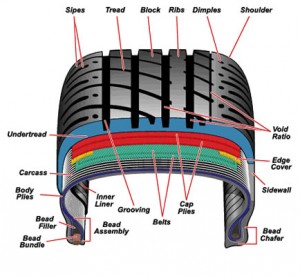
The tread is the part of a tire that contacts the road surface. The tread consist of a layer of rubber, compounded to suit the application purpose of the tire, and the thickness serves to protect the belt and carcass. The tread pattern serves the purpose of improving water drainage, providing traction, braking and cornering characteristics and long tread life.
Sidewall
The sidewall on each side of the tire, between the shoulder and the bead is the section that deflects most during running. The rubber coating serves to protect the carcass.
On the sidewall of every passenger-car and light-truck tire is an alphanumeric code that describes the dimensions of the tire. For most tires, this code will start with a “P”. Some may start with an “LT” to signify light truck. Some tires may have a “Max. Load” indication . When selecting new tires, it is important to make sure a tire’s load rating is at least a high as the tire you are replacing.
Shoulder
Provides continuous contact with the road while maneuvering. Shoulders wrap slightly over the inner and outer sidewall of a tire.
Bead
This is the section of the tire that makes seals the tire to the rim.
Tire Size and Rating
When talking about tire size, the measurements can be confusing. Once you read this, you will never wonder what P225/45R17 91V means. Lets keep the example that I used and break down each part. By the way, this is the size tire my Passat needs. 😉
- “P” That is for passenger car.
- 225 – That is the width of the tread in millimeters
- 45 – This is known as the “aspect ratio”. This is a ratio of sidewall height to section width. The easy way to remember what this number means is, the higher the number the “taller” the tire.
- “R” Simply stands for “Radial” This has to do with the build of the tire. Almost all tires are “Radial”
- 17 this is the size of the rim.
- 91 This is the load rating of a tire, higher the number, the greater the load carrying capacity.
- V Speed rating, the higher the letter the faster the tire goes? Well, the faster it will be stable anyway. 😉
Based on those numbers, that would be a pretty sporty tire. There are also a few numbers than indicate a tires performance. These numbers are usually a little harder to find.
Treadwear
This will be listed as a number. The higher the number, the longer the tire should last. This number is more a “theory” than anything. Tire manufacturers are not regulated in regard to this number. I would not solely rely on this number when shopping for tires.
Traction
The tire’s ability to stop on wet pavement as measured under controlled conditions on asphalt and concrete test surfaces. As of 1997, the traction grades from highest to lowest are “AA”,”A”,”B” and “C”. A tire graded “AA” may have relatively better traction performance than a tire graded lower, based on straight-ahead braking tests. The grades do not take into consideration the cornering or turning performance of a tire.
Temperature
Tire’s resistance to heat and its ability to dissipate heat. The grades from highest to lowest are “A”,”B” and “C”. The grade “C” corresponds to the minimum performance required by federal safety standard. Therefore, the “A” tire is the coolest running, and even though the “C” tire runs hotter it does not mean it is unsafe.
Other Tire Information You Should Know
- The “legal life of a tire” is SIX years from the date of purchase, or the life of the “usable tread”. The “useable tread” is when the original tread is worn to the wear bars which is 2/32 of tread
- Make sure that you check your tire pressure when the tires are cold. Temperature affects pressure. When the tires are hot(after driving) the pressure will be higher. You might let air out of the tire to set it to the correct pressure. This will result in your tires being under inflated.
- Some tire manufacturers recommend rotating tires every 6000-8000 miles. I think that is pretty solid advise. Remember, you can’t rotate your tires too much.
- Michelin brand requires punctures to be repaired with a patch/plug. This fills the hole in the tire, and adds a patch on the inside of the tire. It really is a great way to repair a tire.
- If you have an all wheel drive (AWD, 4motion) make sure you reffer to your owners manual. Some AWD cars require replacing 4 tires. That means if you damage a tire, you might have to buy a full set!
Well, I hope that I was able to simplify the vehicle tire for you folks. The work and engineering that goes into a vehicles tire is pretty fascinating. It is crazy to think that your car rides on little squares on the road. If you have any tire questions, post them in the comments. I LOVE talking tires..
If you learned that tires are more than round, let your friends know, but clicking one of the share buttons below!


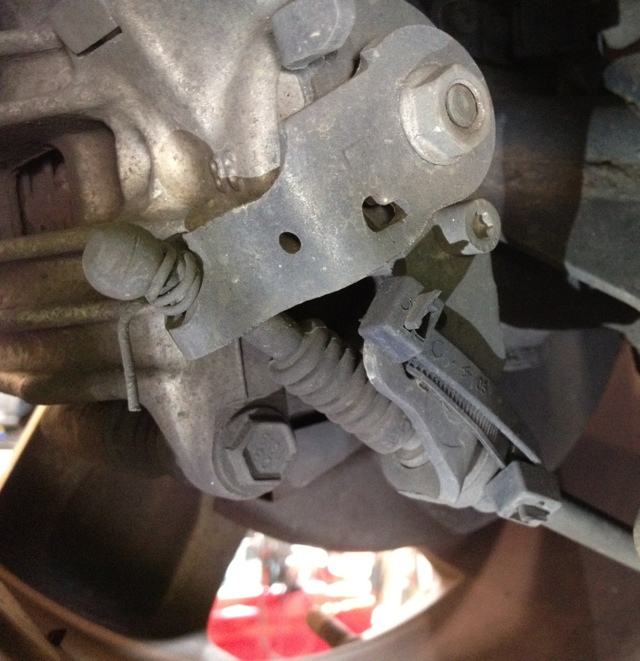
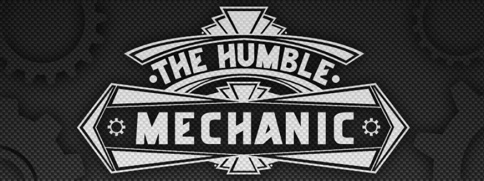
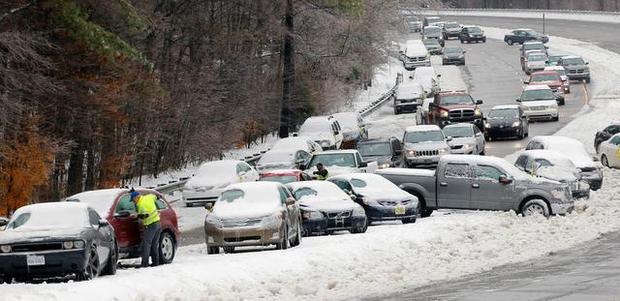
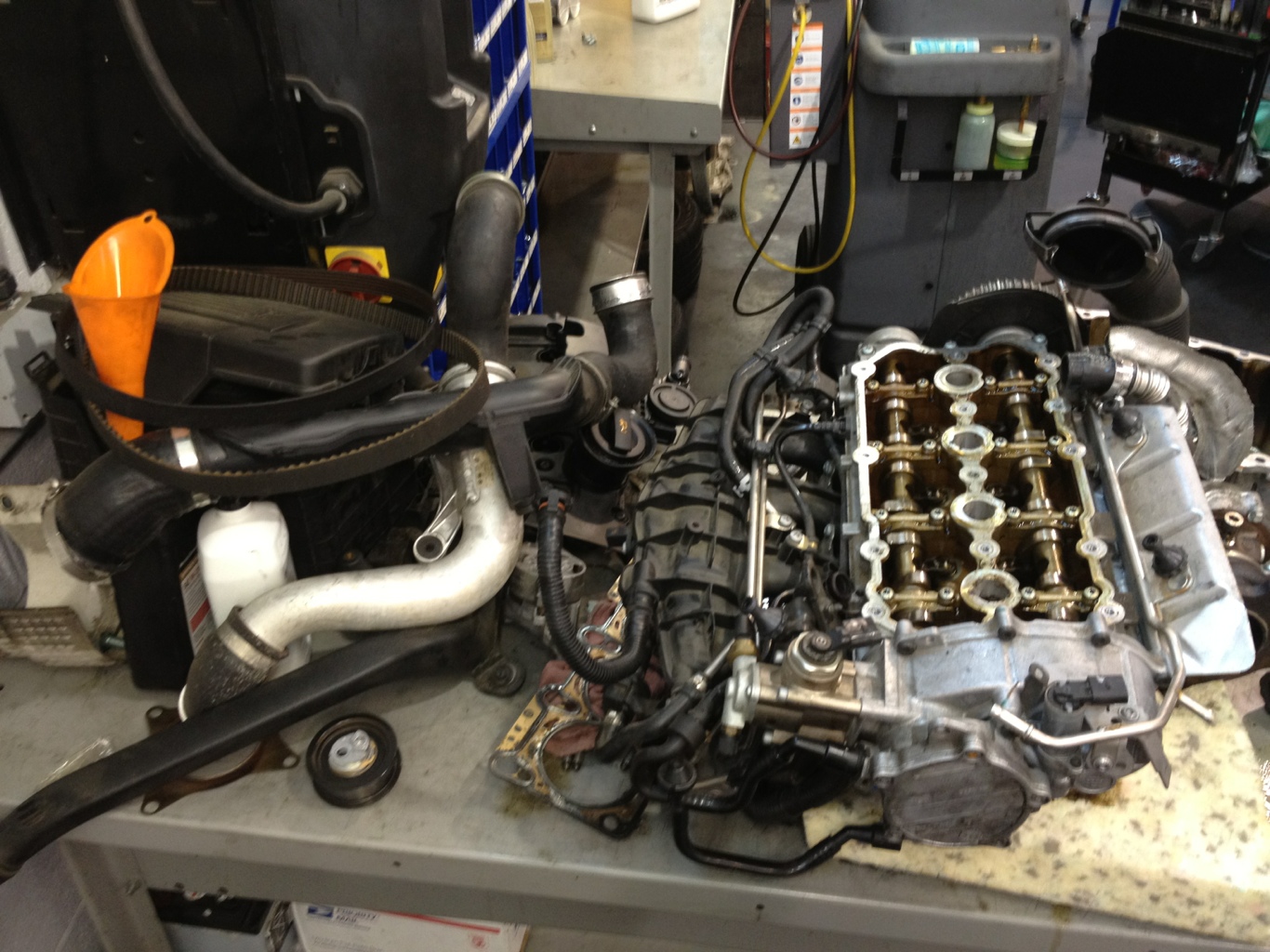

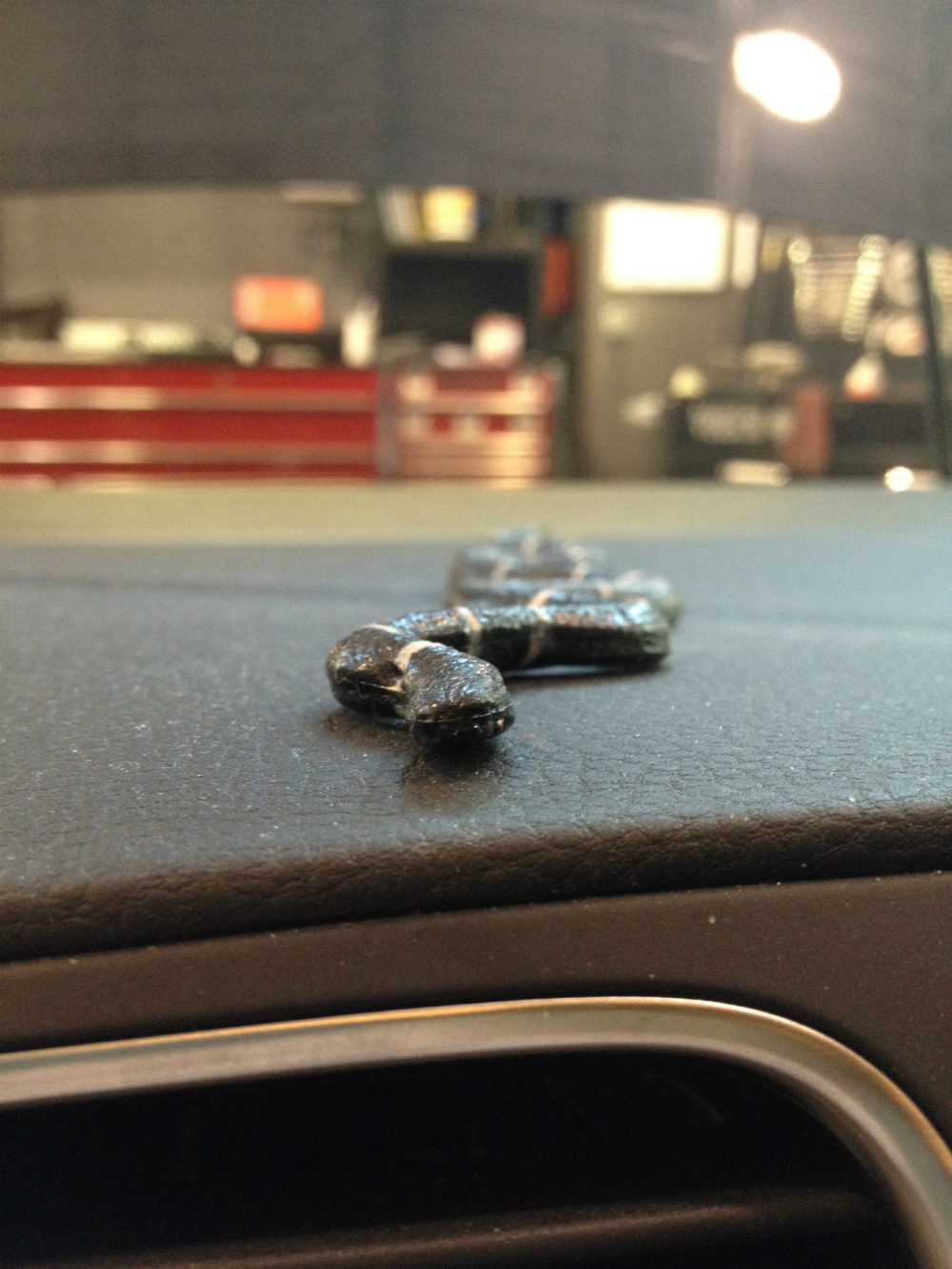

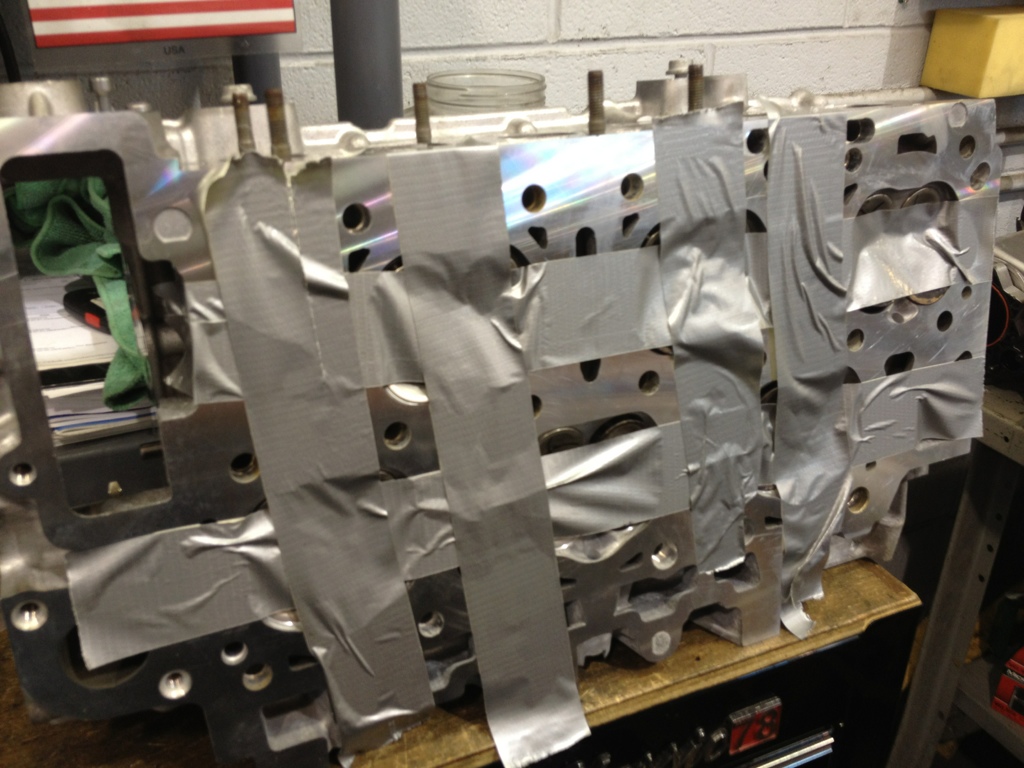
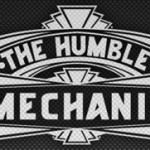
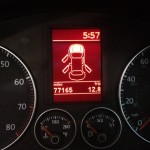
Good post charles! Its ironic i was just trying to do some research on how wide i can go on my mk3 jetta lol.
Anybody have a favorite brand? Ive always liked pirelli. Tried toyo, didnt like them so much. Also tried hankook and cooper..they were ok.
Wanna know what else s ironic? check out Volkswagen USA facebook page, they just happened to post something today about tires!
Hahaha! So when the universe it correct things like this come together.
I have been looking for 1 tire for my car for about a year. As luck would have it, I put 4 tires on my Passat today.
I’m running a 16×9 et 20 bbs rs with a 215/45/16…they are really stretched and that may not be ur thing…with that size wheel and tire along with a suspension drop u will need to roll the inner fender lips as well!!! Hope this helps
Falken 512 is what tyre I like, they are discontinued but still are available from select areas
I dont know too much about the strechin, is there really a purpose or is it purely cosmetic? Ive seen a few that look nice but others look like a big chic wearing a thong in winter…it just aint meant to be! Hahaha.
So who won the contest lol?
We didn’t hit 20 yet!!!!! 😉
looks like I better go hit that share button a few times than 😉
That is what I am talking about 😉
I just love the way they explain all things.